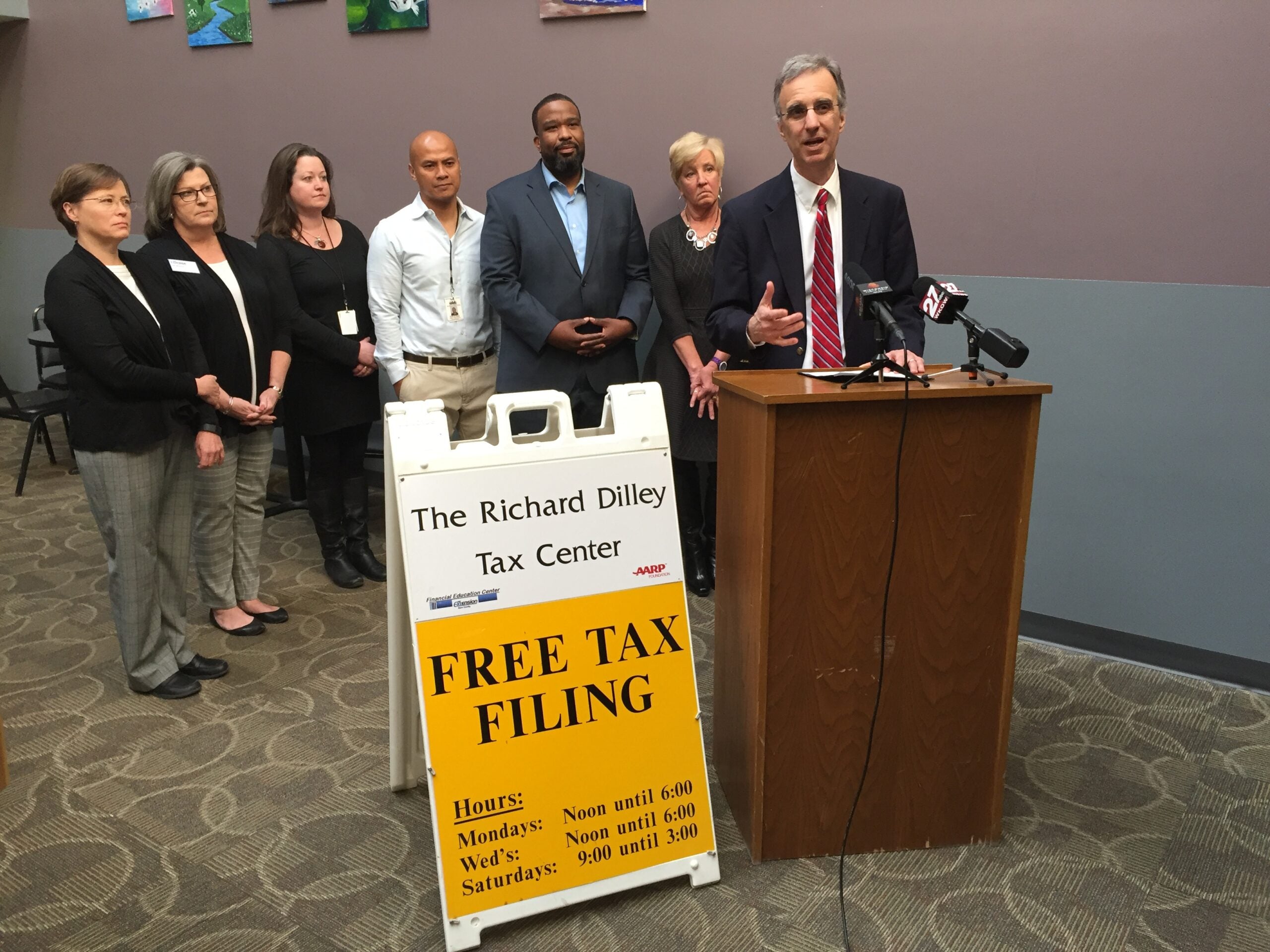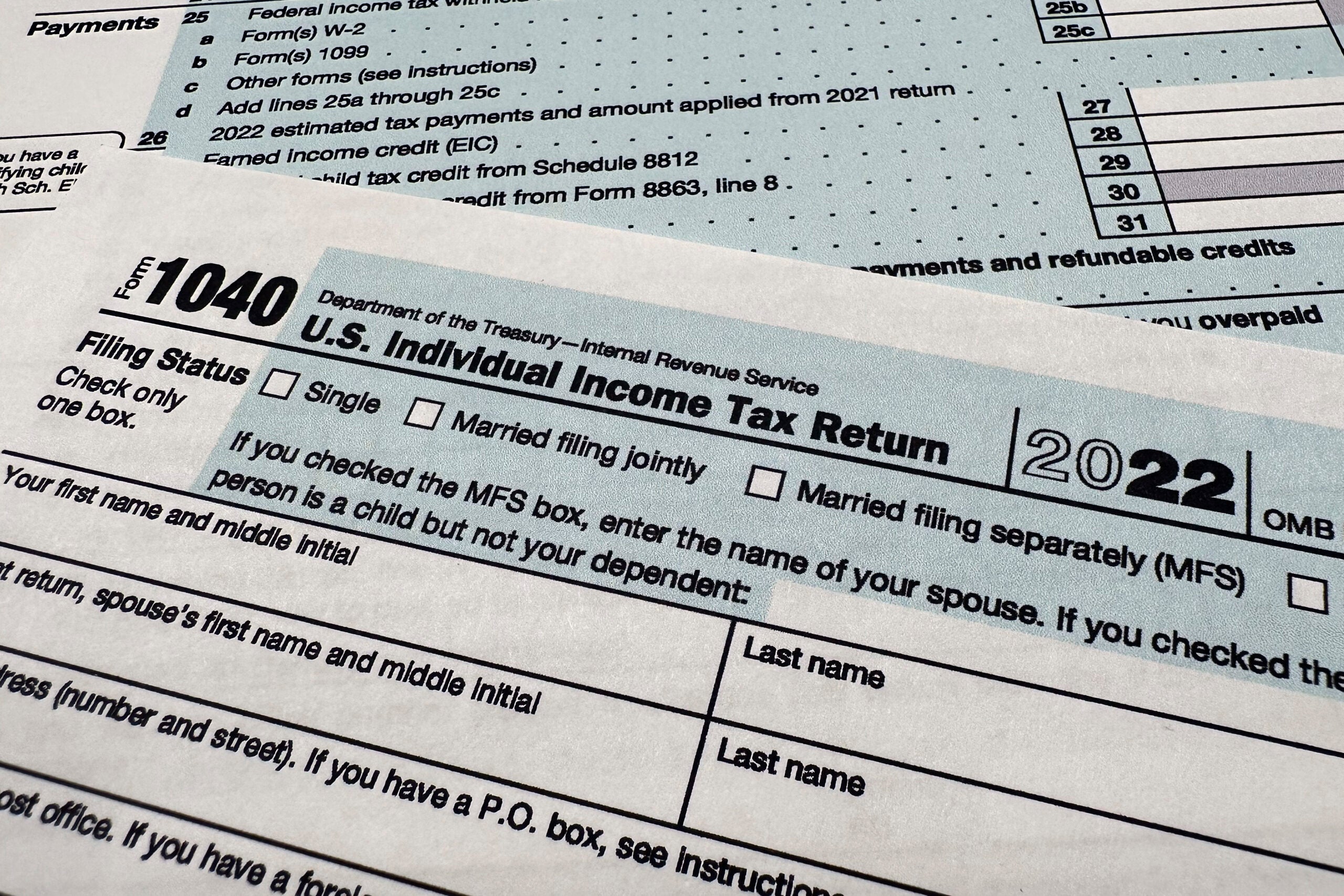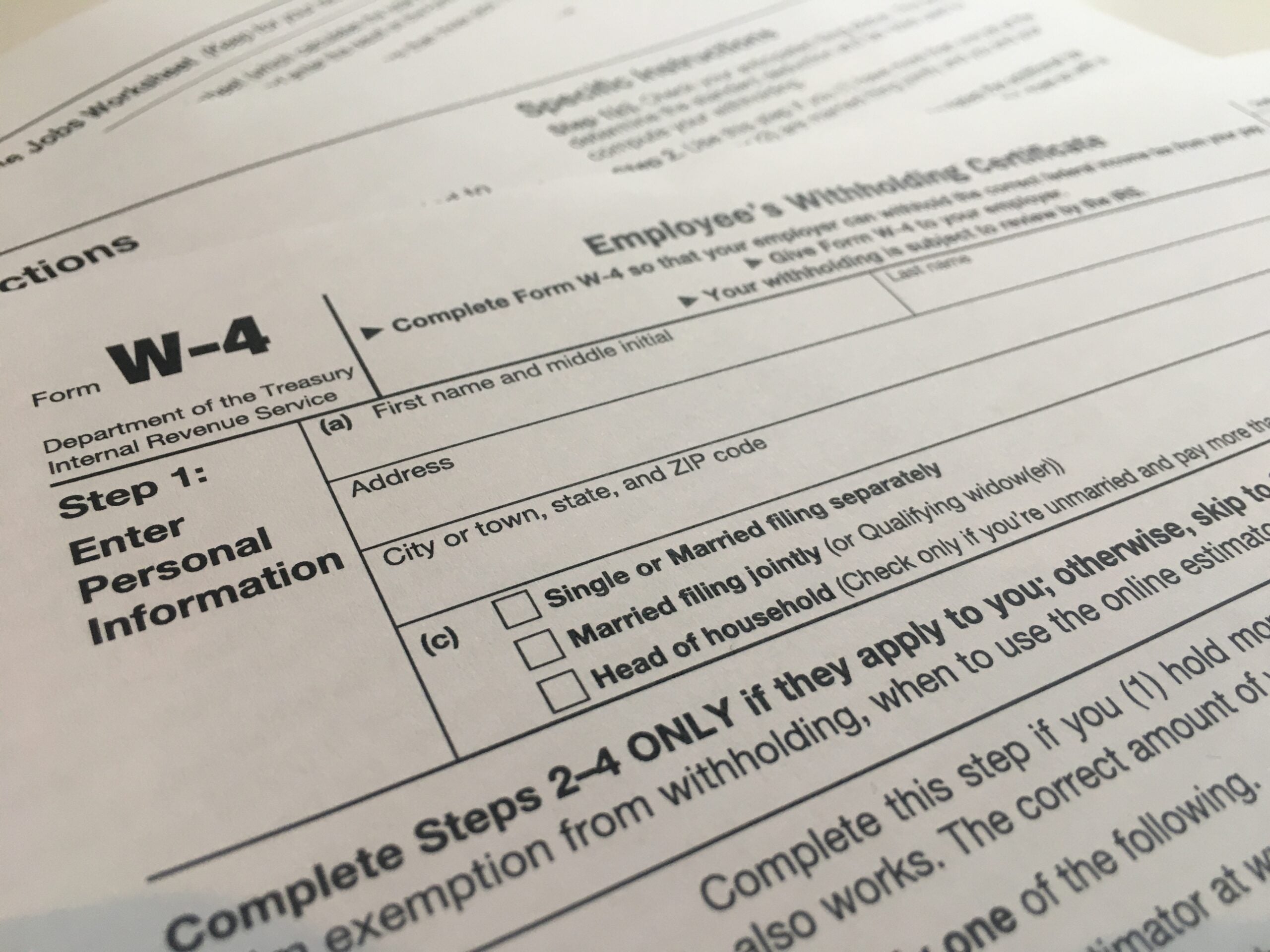For the first time this tax season, Dane County is reaching out to people in low-income neighborhoods to make sure they know they’re eligible for tax benefits.
Wisconsin residents who have a low enough income aren’t required to file tax returns. However, Dane County Executive Joe Parisi said people who don’t owe income taxes should still file their taxes because they may be eligible for tax credits, such as the Earned Income Tax Credit and the Homestead Tax Credit.
“This (outreach effort) is important because this can make a real difference in people’s lives,” Parisi said. “This could be a couple thousand dollars in people’s pockets who may not realize that they have it coming to them.”
Stay informed on the latest news
Sign up for WPR’s email newsletter.
A free tax service in Dane County helped people claim more than $4 million in tax credits in 2015, according to a Dane County press release. Parisi said the average Earned Income Tax Credit that same year was $2,400.
Even though these tax credits are there, only one in five people actually file for them, Parisi said.
“If you didn’t pay taxes, you might think, ‘Well, I didn’t pay any taxes, so I don’t have any coming back, why bother filing?’” Parisi said. “So I think a lot of times people just don’t realize that money’s out there and it’s available.”
Dane County’s Department for Equity and Inclusion, the state Human Services Department and University of Wisconsin-Extension have teamed up to reach out to two low-income neighborhoods in Madison — Allied Drive Neighborhood and the north side, said Stephanie Wilson Miller, communications director for Dane County.
Social workers will be taking the information about free tax preparation sites to home visits and community teams called Joining Forces for Families are putting out flyers, Wilson Miller said.
Wisconsin Public Radio, © Copyright 2025, Board of Regents of the University of Wisconsin System and Wisconsin Educational Communications Board.





